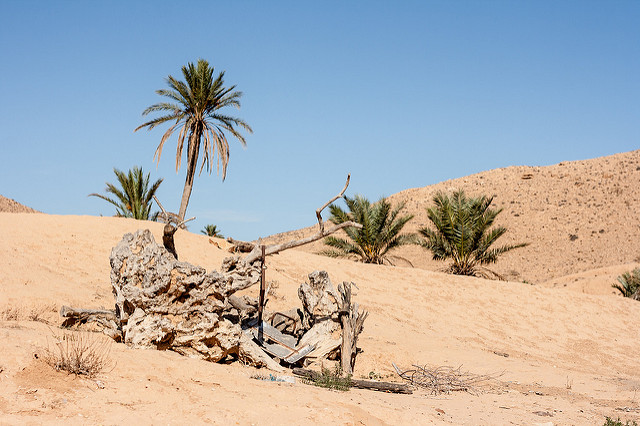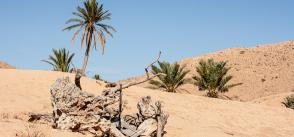
Impact Evaluation of Sustainable Land Management in Tunisia
The Efficiency of GIS and Remote Sensing Data.
The challenge of land degradation is particularly felt in Tunisia, where soil erosion rate is high and affects 50% of its total surface. The land and water conservation has been the focus of national policies for almost 30 years, With a climatic variety going from arid – approximately 77% of the whole area – to semi-arid, the degradation of land and water resources remains a challenge. Multiple national strategies have been implemented since 1990, with the support of law enforcement to decrease this threat, and a special unit (DG-ACTA), which was created in 2001 to support the Ministry of Agriculture. The overall measures taken led to an increase of SLM practices in the Tunisian landscape for better performance.
The key elements triggering a successful land recovery are still under study. Since the process is very slow, the return on investment is, at first glance, not appealing. Therefore, the Economics of Land Degradation (ELD) Initiative was launched to sustain and advocate SLM practices as an integral part of decision-making and policy strategies. ELD highlights the opportunities and benefits of such investment. An ICARDA project “Impact evaluation of SLM options to achieve land degradation neutrality”, funded by GIZ and in partnership with the CGIAR Research Programs on Dryland Systems and Water, Land and Ecosystems, may be offering a turning point. The project is aiming to provide an Impact Evaluation tool for SLM practices that can reliably predict agronomic and economic outcomes of SLM interventions.
SLM Options by Context (OxC) is an online geographic information system that continuously monitors impact on target areas through local assessments made with remote sensing technology.
Read the full article by Fajr Fradi via ICARDA.
[Photo by Conor Luddy | Flickr]







